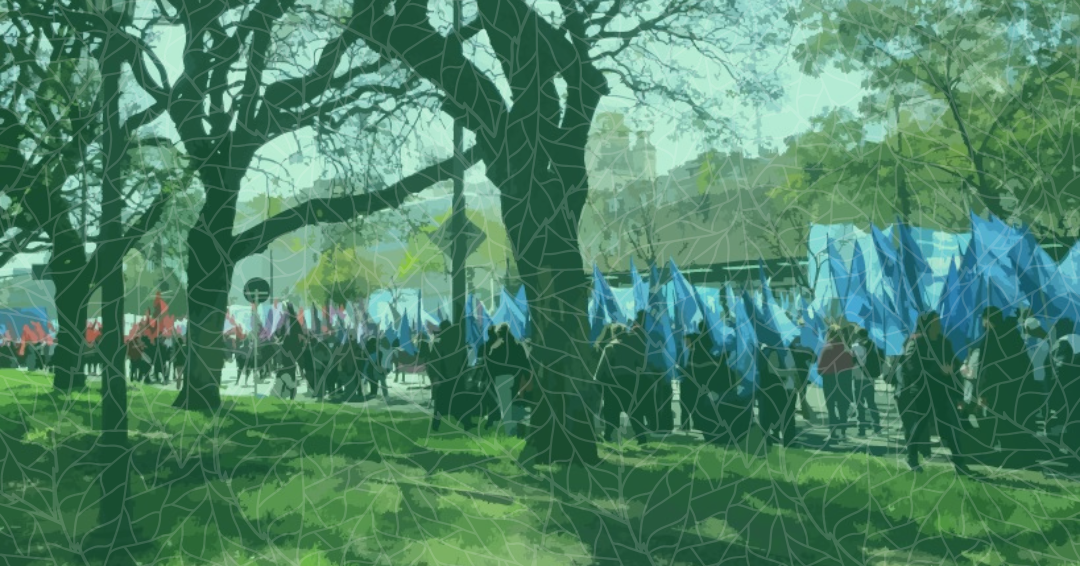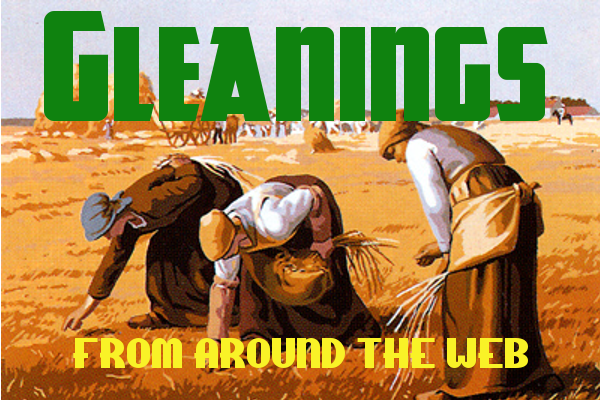This week, scholar and activist Ana Inés Heras writes about how her team of academic-activists collaborates with two cooperative networks in Argentina, how they have sustained the relationships over time, and how the practice of doing so has lead to what Heras terms "organizational solidarity in practice."
Then, Dave Darby writes from the UK about why he believes that "the commons" is the right framing for working in and with working-class and low-income communities to confront and adapt to the quickly changing realities of our present world.
Dynamic Coalitions: Organizational Solidarity in Practice
by Ana Inés Heras
Writing in a global context of war, actions of dispossession, exploitation and right-wing governments dominating the so-called democracies of the West, I find it not only necessary but urgent to make visible practices, discourses and meaning making processes of a different nature. For example, when participating in the creation of self-sustained, self-governed small cooperatives, and contributing to the integration of people otherwise segregated from labor, we not only concretely provide opportunities for work, but also co-create discourses and meaning-making processes that question segregation in society.
How the Commons Can Reach Working-Class Communities
by Dave Darby
We must build the new system quickly yet incrementally, in ways that bring immediate benefits to the majority. I’m talking about working people, whose income is from the work that they do, not from rent on property, interest on loans, dividends, or speculating on assets. Bringing assets into the commons is the one activity I’ve seen that can build that new system in ways that benefit people today.
How Co-ops are Feeding Hawaiʻi
University of Hawai'i News — More than 40 cooperative ventures, many focused on agriculture, came together in a first-of-its-kind convening. A collaborative effort between Enlivened Cooperative, Purple Maiʻa, Kauaʻi Credit Union and UH Mānoa’s College of Tropical Agriculture and Human Resilience helped organize the event to spotlight a powerful, but often overlooked, part of the state’s economy...
Introducing Republican River Valley Home Care Cooperative
Univ. of Nebraska-Lincoln — It started with a simple phone call in 2021. A new Nebraska resident contacted the Nebraska Cooperative Development Center (NCDC), with a question about home care cooperative job opportunities in Nebraska...
A Neighborhood Market, A Call to Action
Working Class Storytelling — The vendors are mostly people working side jobs and trying to supplement their incomes. We live in a poor neighborhood with old, sagging houses. Dented work trucks are parked in driveways, and the bus stops are full of people headed to construction and service industry jobs. “Our vendors are single moms, older people living on fixed incomes, and teachers making some extra money during the summer,” says Shante. “They are just working-class people who get off work at 4 PM and already have their car loaded up and ready to come set up over here.”...
Trade Agreements Must Prioritize People Over Profits: Worker Co-ops Can Help
Canadian Worker Co-operative Federation — When worker co-ops do engage in international trade, moreover, they favour fair trade over free trade. There are examples in Canada including Just Us! and La Siembra, and overseas, such as India’s Self Employed Women’s Association. As Fairtrade America notes, “fair trade helps businesses source products that are ethically and sustainably produced while giving consumers confidence that the people behind the products they buy get a fair deal for their hard work.” And having this confidence is important to many consumers...
A Study of Kerala Dinesh Beedi Workers' Central Co-operative Society
SSRN — At the height of its performance KDB was able to provide jobs to over 42000 people. KDB was instrumental in developing a sophisticated culture in the region. They had internal procedures such as reading the newspapers daily, having political and cultural discussions in between work hours as part of the extra-curricular activities. This helped even the least educated to gain knowledge and be updated about the current affairs. Identifying the decline of the Beedi industry and the threats faced from other states KDB diversified into other avenues to accommodate employees and keep growing...
Like what you find on GEO?
Make a Donation Today!
Your tax-deductible contribution ensures that GEO can continue to provide independent grassroots content about the cooperative and solidarity economy movements.
Got something to say?
Let us know. Send your comments, suggestions, rants and article submissions to editors@geo.coop.
Follow us on Social Media
Mastodon: social.coop/@GEO_Collective
BlueSky: @geocollective.bsky.social
FB: facebook.com/GEOCollective
Twitter: twitter.com/@GEO_Collective
Instagram: instagram.com/grassrootsecon
Our mailing address is:
Grassroots Economic Organizing
P.O. Box 115
Riverdale MD 20738-0115




